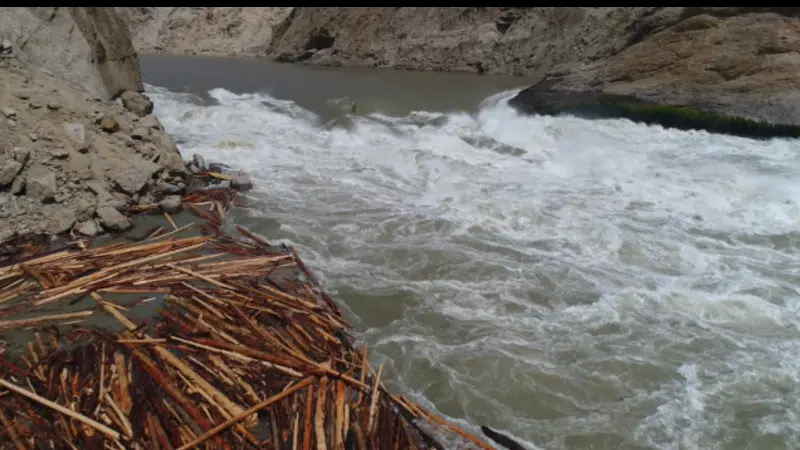
Crews expected to work on Big Bar landslide site through the winter
LILLOOET, B.C. — The federal government is hoping crews can work quickly during the winter to repair the area of the Fraser River that’s been impacted by the Big Bar landslide.
In a news release, Fisheries and Oceans Canada says Phase 1 of the operation from July to September successfully achieved the short-term objectives — ensuring the safety of personnel and the public, and moving salmon past the slide by whatever means possible.
Fisheries and Oceans Canada was first notified of the slide on June 23.
Since then, salmon have been trapped and transferred, and natural fish passages have been partially re-established.


